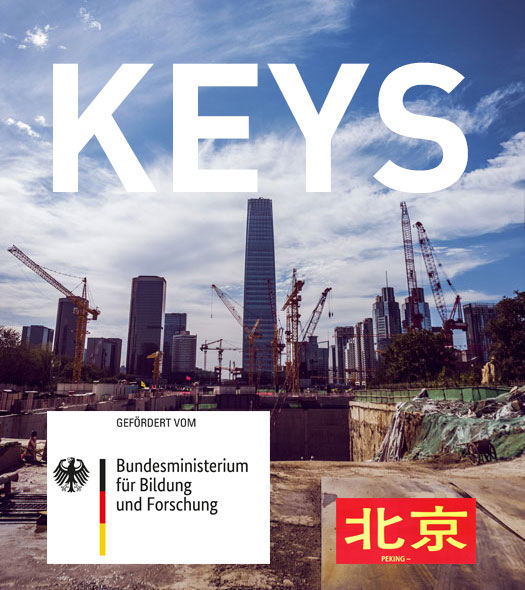KEYS – Steinhardt continues BMBF research in China
Following the successful completion of two research projects funded by the Ministry for Education and Research (BMBF), Steinhardt has now received confirmation of participation in a follow-up project, KEYS. The project actively supports the development of German smart technologies for application in China’s Sponge City scheme.
The Leibnitz University in Hanover and the consortium of partner companies are designing equipment specifically for local conditions in the Chinese capital Beijing as well as in the booming metropolis of Shenzhen. The pilot projects will offer sustainable solutions that can also be applied to other sites in China.
In Beijing, for example, drain channels along highways are being reactivated as seepage troughs for stormwater to be cleaned using innovative technology. A demonstration plant for particle separation is in development, adapted to the local circumstances. The process technology of the Steinhardt HydroMESI is the model on which the design is based and developed according to onsite requirements. In Beijing’s new government district the project team is constructing a high-grade treatment centre with inflow structure, coarse separation, flow regulation, deposition, filtration and equalising basin. The force of gravity is the driving force, no external power source is necessary.
The design will use the local topography to reduce, delay and cascade outflows in order to prevent flooding in the lower regions of the city. A “Chinese” HydroSlide flow regulator has been devised taking into account the difficult local conditions, which include short but heavy monsoon rainfall, critical erosion, the depositing of plastic waste, garbage, etc. at surface level as well as in the sewage system itself. To get to grips with the not inconsiderable challenge alternative hydraulic discharge schemes are being examined; one example of which is a combination of HydroSlide and HydroStyx, where the technology is based on a succession of discharge brakes with computed openings and cascading.
The total budget for the new KEYS project amounts to € 137K, the work is set to begin in August 2018.








